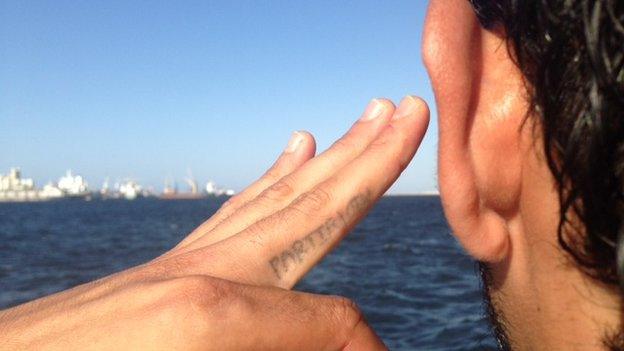Illegal migration to EU rises by nearly half
- Published
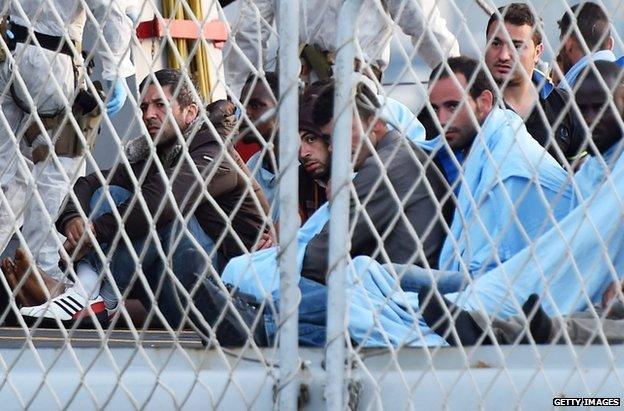
Italy rescued 206 migrants from a shipwreck this week
The number of people detected trying to enter the EU illegally in 2013 rose by nearly half on 2012, with nearly one in four from Syria, an EU agency reports.
A total of 107,000 detections were registered by the EU's borders agency, Frontex, compared with 72,500 in 2012, it said in its annual risk analysis, external.
While the figure rose by 48%, it is still much lower than in 2011, when the Arab Spring drove numbers to 141,000.
Italy is demanding help in coping with the numbers arriving by sea.
Most of last year's clandestine migrants attempted to enter the EU via the Central Mediterranean sea route, heading for southern Italy.
As war raged in their home country, some 25,500 Syrians were detected trying to enter illegally, while Syrian applications for asylum in the EU nearly doubled on the previous year, to reach 50,096.
Among Frontex's other findings
After the Syrians, the biggest groups of illegal migrants were Eritreans, Afghans and Albanians
Hungary detected a sharp increase in illegal crossings at its border with Serbia, as visa restrictions were relaxed in the Balkans
There was a surge in the number of Chechens seeking asylum in the EU, possibly sparked by rumours that Germany was favouring Chechen applications
Russians (including Chechens) ranked first for refusals of entry at EU borders, followed by Ukrainians and Albanians
After an Italian warship rescued 206 survivors and retrieved 17 bodies from a migrant shipwreck this week, Interior Minister Angelino Alfano warned his country would defy EU asylum rules if it did not get more help to patrol its maritime borders.
"We'll just let them go," he said, referring to an EU agreement that migrants must remain in the country in which they arrive until their status as refugees is decided.
"We want to clearly say to the EU that they either patrol the Mediterranean border with us or we will send all those who ask for asylum in Italy where they really want to go: that is, the rest of Europe, because they don't want to stay in Italy."

Major routes for clandestine migration to the EU
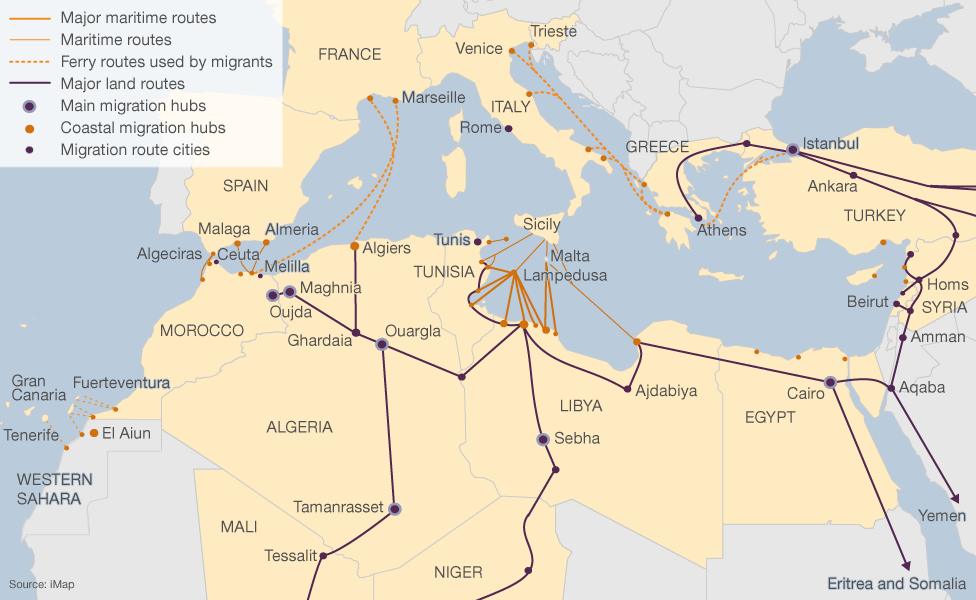
- Published12 May 2014
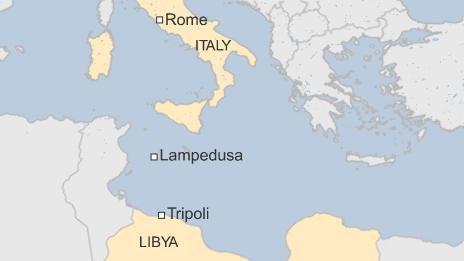
- Published30 September 2014
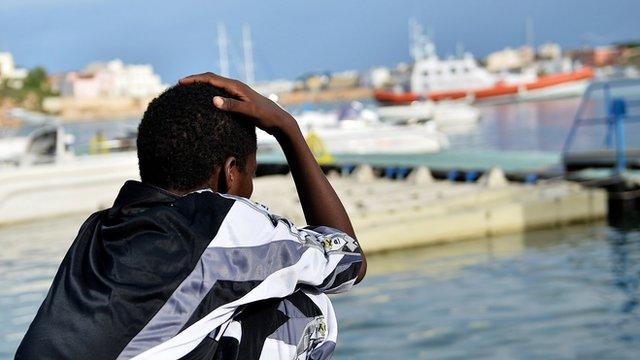
- Published3 March 2016
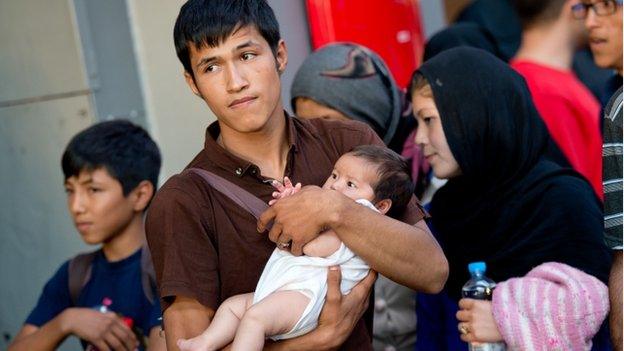
- Published15 October 2013
